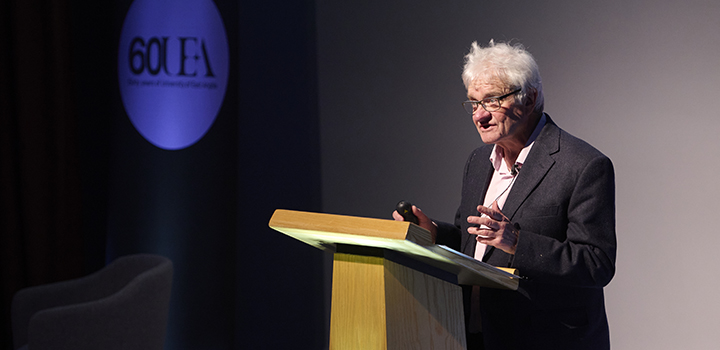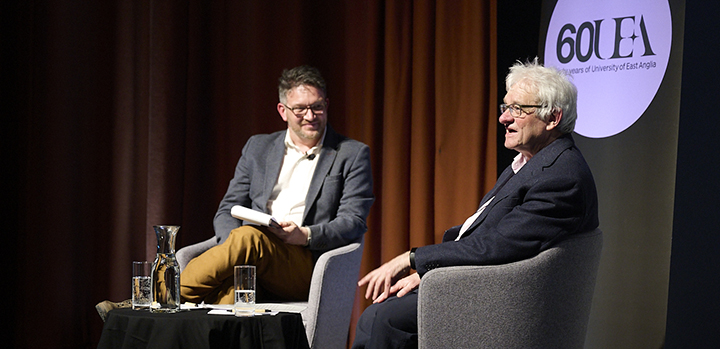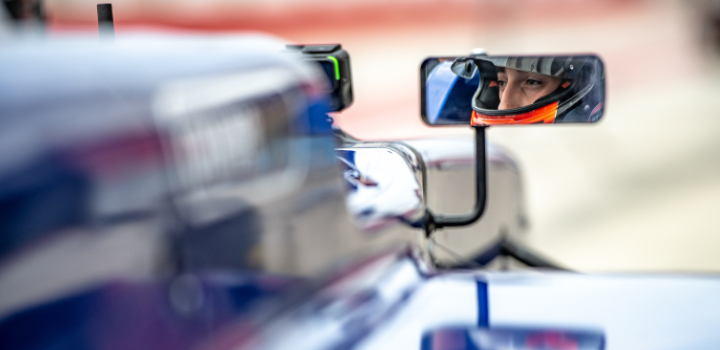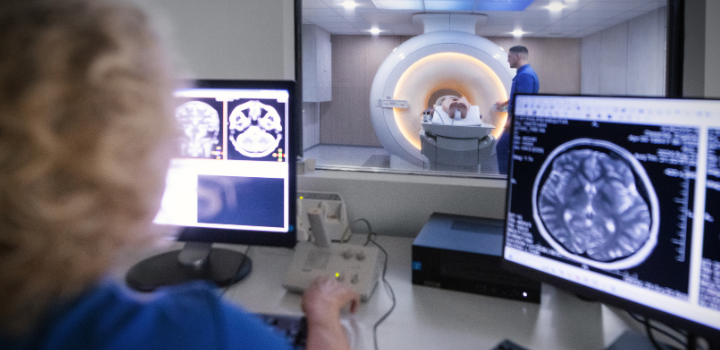Nobel Prize winner inspires students during university visit
By: Communications

School and university students had the chance to learn more about the life and career of Nobel Prize winner Sir Paul Nurse when the geneticist returned to the University of East Anglia (UEA).
Sir Paul, awarded the Nobel Prize for Physiology or Medicine in 2001, completed his postgraduate studies at UEA in the early 1970s.
He returned to the Norwich campus on Monday 11 March to host a lecture as part of the University’s 60th anniversary celebrations.
He shared stories of his time at UEA, his career and achievements with an audience of alumni, supporters, staff and students – as well as a global audience watching online - and gave a keynote presentation which talked about revolutions which have driven scientific discovery from prehistory to the modern day.

Sir Paul Nurse speaking at UEA's 60th anniversary lecture
"My main driver is curiosity"
Before the lecture, he spent time with about 30 GCSE and A-Level students from City of Norwich School, Sir Isaac Newton Sixth Form, East Norfolk Sixth Form and Hewett Academy, and UEA undergraduates and postgraduates.
“My main driver is curiosity and wanting to know how things work,” he told the students. “My interest in science started at primary school. I was always interested in the world around me. I had quite a long walk to my primary school, and I looked at the changing seasons as I walked through the park each day. I became interested in how all this works, and that’s what sparked my curiosity.”
He told the students that getting into university as an undergraduate was a challenge for him. “I built resilience early on. I wasn’t from an academic family,” he said. He shared stories of early experiments, work with leading politicians and even tales of his time with the UEA gliding club.
“It is great being back on campus,” he said. “I’ve been back a few times and was also here to celebrate UEA’s 50th anniversary.”

Sir Paul Nurse (right) in conversation with Prof Ben Garrod at UEA's 60th anniversary lecture
Kate Morris, Head of Science at Hewett Academy, accompanied GCSE students to the event. She said: “They have been really looking forward to this, it’s a wonderful opportunity. They have been hanging on Sir Paul’s every word and are taking it all in.”
In 2010, Sir Paul became the first Director and Chief Executive of the Francis Crick Institute in London and for five years was President of the Royal Society.
Rewatch Sir Paul Nurse's 60th anniversary lecture online below.
Related Articles

UEA launches study after supplement shows promise in professional racing drivers
Researchers at the University of East Anglia (UEA) are launching a new study to see whether American ginseng extract could boost brain health.
Read more
UEA to receive share of £15 million funding boost for region
University of East Anglia researchers have been awarded a share of £15.3 million to tackle real-world health and care challenges across the region and beyond.
Read more
MRI scan breakthrough could spare thousands of heart patients from risky invasive tests
Doctors may soon be able to tell just how sick a heart failure patient really is by using a routine MRI scan, thanks to new research from the University of East Anglia (UEA).
Read more